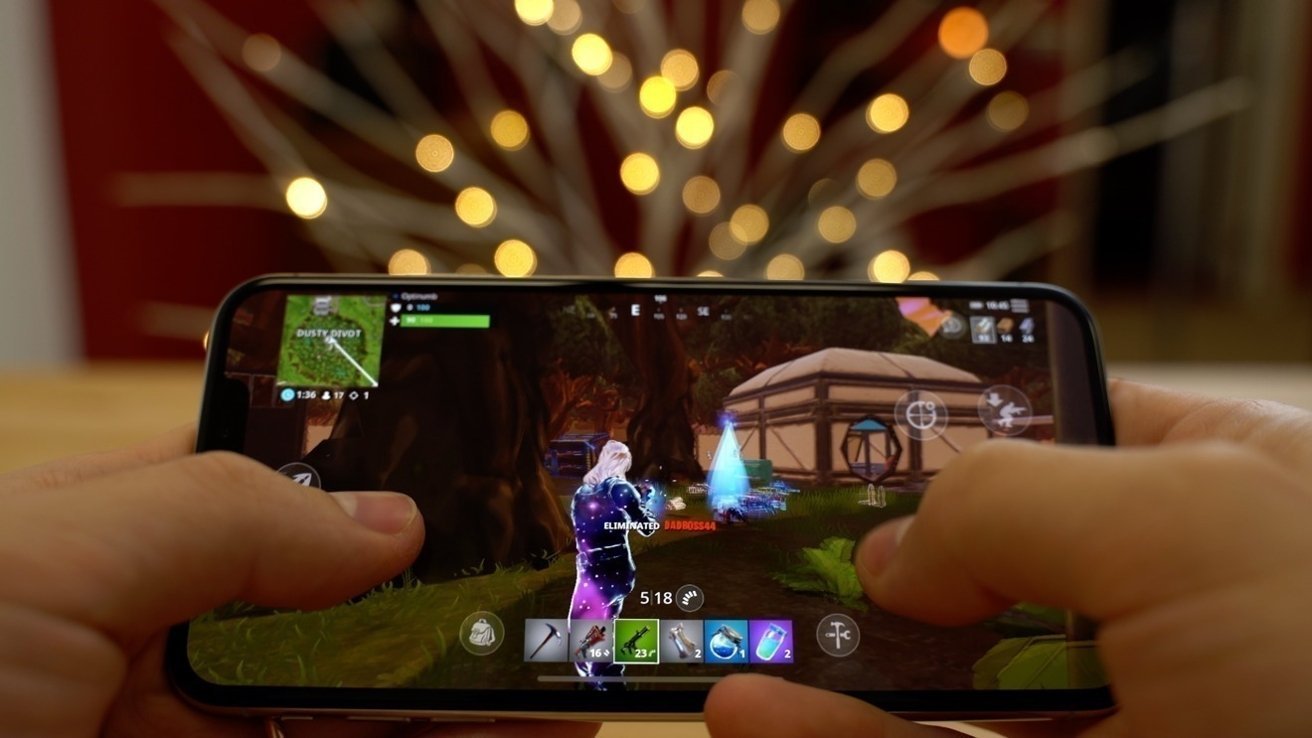For three years, we've been hearing about Epic Games' fight with both Apple and Google over how App Stores operate, with the decisions going in wildly different directions in each case. Let's look at why.
Before anyone gets lost in a haze of free market, anti-monopoly philosophizing, let's remember that Epic's motivation is money. They wanted to keep more of what they earned from their mobile games, starting with the popular Fortnite.
Epic thought the 30% cut — which isn't always 30% — Apple and Google expected was too much. And, in fairness, Apple ultimately modified its commission terms after Epic's initial complaint.
Apple dropped its commission rate in half after the subscriber's first year. Apple also set up an App Store Small Business Program, garnering a lower commission rate for developers who make less than $1 million a year in sales.
Epic doesn't qualify for the lower commission rate, of course, but most do. As it turns out, more than 90% of developers qualify, according to Apple's own estimates.
But Epic tried to subvert both Apple and Google' in-app purchase systems, and was kicked out of paradise for its efforts. Banned from both stores, Epic then sued each company for anticompetitive behavior.
Epic mostly lost its fight with Apple in 2021, but in mid-December, Epic decisively won its fight with Google. There are various reasons why.
Epic was (mostly) wrong about Apple
The judge in the Apple case ruled that Epic failed to prove its central thesis, that Apple was operating as an illegal monopoly. Judge Yvonne Gonzalez Rogers ultimately rejected 9 of the 10 claims Epic made, although she did find that Apple violated the state of California's unfair competition law through its "anti-steering" efforts.
The injunction she put in place requires Apple to let app developers provide links to alternate payment methods, though that matter is not yet settled. Apple's fighting it tooth and nail all the way to the Supreme Court. The 9th Circuit Court delayed implementing Rogers' injunction, and the Supreme Court has upheld that decision while Apple gets ready to appeal the case to them.
What's more, Judge Rogers ultimately left the door open to future litigants who want to sue Apple on similar grounds. She didn't deny that Apple wielded enormous influence in its app ecosystem.
She ruled that Epic hadn't made its case that that constituted a monopoly, specifically. Instead, she defined the market as "digital mobile gaming transactions," a more broad definition that included both Apple, Google and others.
Epic was right about Google
The second time around, Epic did a much better job of proving that Google wielded its monopolist status over its ecosystem like a cudgel.
Ultimately, Google hoist itself by its own petard.
Google's own "Project Hug" effort treated some top-tier developers differently than others, paying out hundreds of millions in incentives to keep game developers and publishers in the Play Store.
Epic's attempt to bypass the Play Store so rattled Google that they were afraid that if Epic were successful, other big names in the game world would follow suit. Google worried that it could lose up to $6 billion in Play Store revenue if Amazon, Samsung, and others decided to roll their own payment systems.
In court, Epic called the effort "bribe and block," a strategy that paid "actual and potential competitors not to compete."
Unlike the Apple case, the jury was left to define the scope of Google's market in its ruling, and it went with Epic's definition as the source of Android app distribution and associated billing services. That narrower definition compared to Judge Rogers cast Google's actions into a harsher light.
It didn't help that Google's note-taking was both excellent and awful. During the process of discovery, Epic found plenty of examples where Google executives said the quiet things out loud that painted a damning anti-competitive picture.
It's also telling what wasn't revealed. Google wasn't able to produce a lot of text chat between executives. The result, they claimed, of a default setting on their Google Chat app.
Which, if true, is ultimately not an excuse — the company has an absolute requirement to retain that stuff. Google should have known better, and that fact wasn't lost on Judge James Donato, who presided over the case.
Donato told the jury on their way to their ultimately very short deliberation that the absence of that evidence could be construed negatively against Google. And at least one juror told reporters after the ruling that Google's ethically dubious lack of data retention played into their decision.
That brings us to our next point:
Different cases, judges, and a jury
First of all, Apple won because it never claimed to be open in the first place. It treats all developers by the same set of rules, and the penalties for breaking the rules can be severe.
Google doesn't have one set of rules, the trial proved. It championed being open, and at the same time it carved out special deals in secret and took steps to be sure that other parties didn't hear about the deals.
Google's more superficially open ecosystem worked against it, in the end. Apple's absolutely rigid behavior to not allow any app stores but its own gave the company a legal consistency around how it charges developers. Google may pay lip service to openness, but it aggressively and egregiously abused its power to keep the Play Store's dominance.
And, the same judge didn't hear both cases. Every judge brings their own wealth of experience and legal understanding to the proceedings.
It's also important to note that Epic's case against Apple was a bench trial. It was put before a judge, not a judge and jury, unlike the Google case.
Legal experts often agree that jury trials play out better if there's a narrative with emotional appeal. With Epic's lawyers pitting it as the rugged billion-dollar underdog, versus the trillion-dollar Google and Apple, there was a story for the audience to grab and identify with. Epic is very much their own 800 pound gorilla, but that's compared to Google's King Kong.
Bench trials, meanwhile, typically hinge on very specific legal or highly technical issues that a judge can make better sense of, than a group of laypeople without that judge's acumen and experience. Judge Rogers was clearly threading that line a few times in her judgments in the Epic v Apple case.
Google woes continue
Google's having a December it probably would prefer not to remember. The week following the verdict in the Epic case, the company agreed to a $700 million payout to settle an antitrust case put forth by attorneys general in several states, which it settled in September.
About 102 million US consumers will be eligible to get a piece of the settlement. Most of the money — $630 million — wil be paid out to consumers, with states expected to receive about $70 million for their trouble.
Judge Donato will decide on damages in the Epic v Google case after holding hearings in mid-January, and Google has already said it will appeal the decision. So, at least for the moment, it's status quo.
But change will be coming, for sure, both to the Apple App Store and to Google's Play Store sooner rather than later, not just because of this trial, but also because of international regulators. As with most things involving billion- and trillion-dollar powerhouses, the partial tale will only be told when the dust settles, and the full story will have to wait for biographies and historians.
 Peter Cohen
Peter Cohen

-m.jpg)






 Oliver Haslam
Oliver Haslam
 Thomas Sibilly
Thomas Sibilly
 Marko Zivkovic
Marko Zivkovic

 Wesley Hilliard
Wesley Hilliard
 Malcolm Owen
Malcolm Owen
 Andrew Orr
Andrew Orr



-m.jpg)






5 Comments
A clear-eyed and informative summary of some complicated issues and proceedings, thanks!